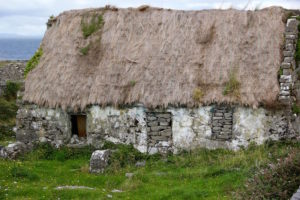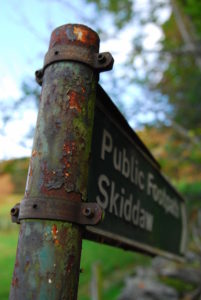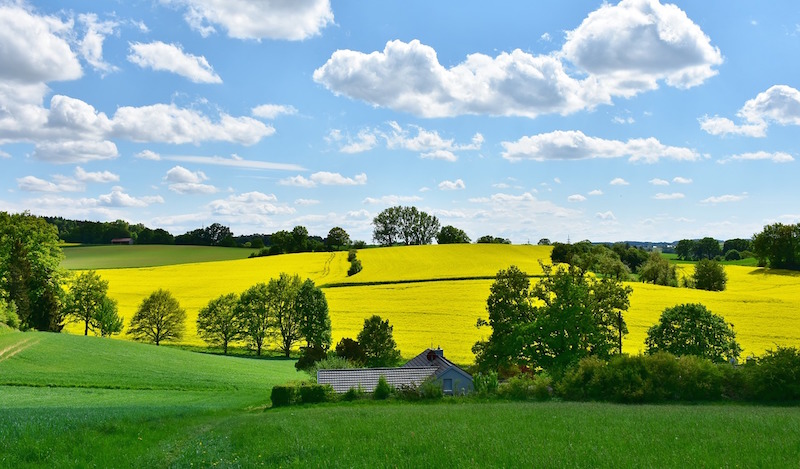If you want to save money on your land insurance, it pays to understand a little more about how your insurance company calculates your premium. And that means understanding land insurance rating factors. Whilst there are some factors that you can’t change, there are others that you can influence. And when it comes to getting your next quote, you’ll discover that can really make a difference to the price.
Read on to find out how you can get a better price on quality insurance you can count on.
 What is a rating factor?
What is a rating factor?
The cost of your insurance is based on a number of rating factors, which cover everything from your age to where you live. Some of these factors can make a big difference to the amount you’ll need to pay, whilst others have less of an impact. For example, your previous claim history is likely to have a significant impact on your premium cost, whilst your gender or marital status will have less impact.
Understanding land insurance rating factors
To calculate the likely risk that you pose, your insurance company will consider a long list of rating factors.
Here’s our list of the most significant rating factors that can influence the cost of your premium:
The level of coverage
This is the maximum amount the insurance company will have to pay out if there is a claim. The higher this figure is, the higher your premiums will be. When you take out land insurance, the bulk of your premium is likely to cover your public liability because payments for injuries and damage can be high. This indemnity is commonly set at £1 million, £2 million or £5 million. The level of indemnity you opt for will depend on the type of land you own and the risks you face — generally the lower the indemnity, the lower the premium. But take care not to skimp or you could find yourself paying a lot more in the long run.
Size
The size of the piece of land you want to insure and if it has any significant features will also influence the premium.
 Access rights
Access rights
The more people who can access your land, the higher your premium is likely to be. You’ll need to tell your insurer if there are any public rights of access on the land as that can increase the risk. And if you employ people to work on the land you’ll need to have employer’s liability insurance by law.
Buildings
The presence of structures, including derelict buildings, or waterways, which can increase the level of any potential claim. For example, a member of the public can cause themselves a greater injury if a roofing slate falls on their head compared to if your land is just open pasture.
Special materials or listed status of structures
If you are insuring listed buildings, such as a barn, as part of your land insurance this can increase your premium. That’s because the cost of repairing or rebuilding it is likely to be higher than a standard construction barn.
The location
Just like your home insurance, the postcode location of the land you want to insure will influence the cost.
Previous claim history
Like all insurance, if you have previously made a claim against your land insurance that can increase future premiums.
Security measures
The level of security, such as CCTV, can influence your premium.
Remember
Bear in mind that not every insurance company considers these rating factors in the same way. This is what can lead to you getting two very differently priced quotes for two very similar policies. That’s why it always pays to shop around for your insurance to find the best price on the best deal.
 Our 3 top tips to reduce your land insurance premiums
Our 3 top tips to reduce your land insurance premiums
- Shop around. The number one way to keep your premiums down is to shop around for a better deal. You can call up insurance companies yourself or use a specialist broker, like Park Insurance, to do this for you. The more companies you contact, the greater the likelihood that you’ll discover the best price premium out there.
- Look for an insurance company that specialises in land insurance. Insurance is based on risk and the more information a company has, the easier it is to calculate risk accurately. Using an insurance company that has little experience of providing land insurance is likely to mean higher premiums as lack of data converts into a higher risk factor.
- Adjust your excess. Increasing your excess (the amount you automatically pay if you do make a claim) can lower your premium. That’s because insurance companies know that there are fewer claims for small amounts on policies with a high voluntary excess, which saves them money. Just take care that you don’t set your excess too high or it could become unaffordable for you to make any claim at all – and that will cost you much more in the long run.
Get a free quote on quality insurance you can rely on
At Park Insurance we have 30 years experience of helping landowners, including self-builders, to find land insurance. Whether you want to insure a city-centre car park, a sprawling country estate, or a shared driveway, we’ll find the best price for you with no compromise on the level of cover.
- We’ll talk through all the land insurance rating factors to make sure you pay for what you need. You can be confident you’re not shelling out for unnecessary cover.
- We’ll take the hassle out of shopping around by using our extensive network and negotiating power on your behalf.
- As we’re an independent insurance broker, we’re genuinely free to shop around to find you the best deal.
- And we’ll make sure that your insurance does not leave you underinsured. That means no nasty surprises lurking in the small print.
For a free quote, get in touch with our dedicated land insurance team on 0117 955 6835 or get a quote.

